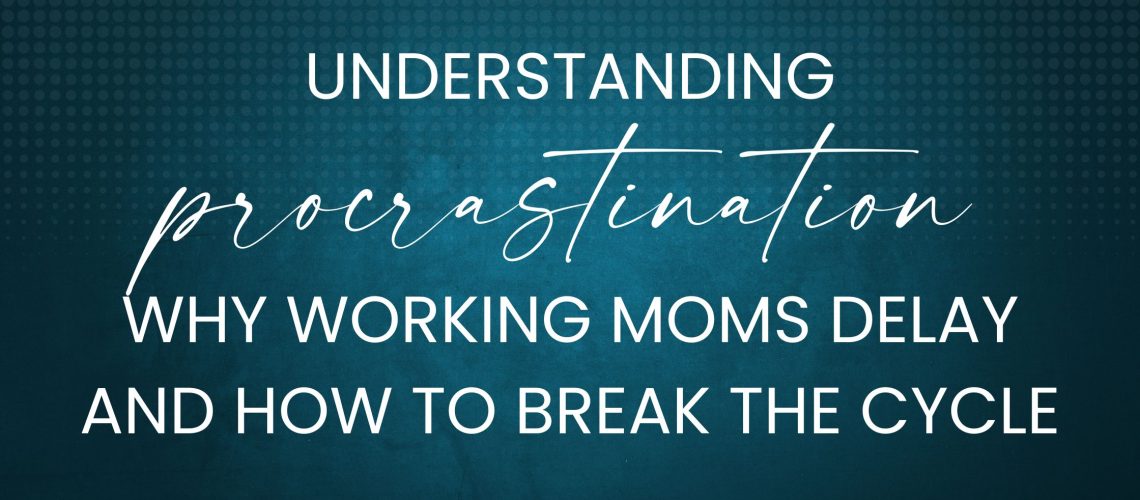
EP50 Understanding Procrastination – Why Working Moms Delay and How to Break the Cycle
Ever find yourself putting off that big work project or avoiding organizing that pile of laundry? You’re not alone, and you’re definitely not lazy. In this post, we’ll dive into why working moms are particularly vulnerable to procrastination and share practical strategies to help you tackle it head-on.
Why Do Working Moms Procrastinate?
Balancing a demanding career with a full load at home can be incredibly fulfilling yet equally challenging. But procrastination isn’t always about laziness or a lack of discipline. Often, it’s a response to the heavy mental and emotional load we carry daily. When you’re trying to juggle work expectations and family responsibilities, it’s easy to feel stuck.
In fact, procrastination often stems from three big triggers:
- Overwhelm: With responsibilities piling up, even small tasks can feel daunting.
- Perfectionism: The urge to do everything flawlessly can actually slow us down.
- Decision Fatigue: Constant decision-making can leave us mentally exhausted.
Recognizing the Signs
Procrastination doesn’t always look like ‘doing nothing.’ Sometimes, it’s choosing ‘safe’ tasks, like reorganizing the pantry or endlessly scrolling through emails instead of preparing that important presentation. If you catch yourself prioritizing low-stakes tasks or avoiding specific responsibilities, it could be a subtle form of procrastination.
Emotional Signals to Watch Out For
When you delay something, ask yourself if it’s because of stress, anxiety, or guilt. These emotions often drive procrastination, and spotting them can be your first step toward breaking the cycle.
Strategies to Break the Cycle of Procrastination
Now that we understand why it happens, let’s look at a few ways to overcome it. Here are three practical strategies:
- The Two-Minute Rule: If a task takes less than two minutes, do it right away. This helps reduce the buildup of small tasks that can later feel overwhelming.
- Time Blocking: Set aside specific times for work and home tasks. By focusing on one thing at a time, you limit task-switching, which is often a trigger for procrastination.
- Chunking Big Tasks: Break down larger projects into smaller, manageable steps. For example, if you have a big presentation, start by drafting an outline, then move on to creating just the first few slides. This makes it easier to gain momentum and stay productive.
Shifting from Perfection to Progress
One of the most powerful mindset shifts is letting go of perfection. High standards are great, but trying to do everything perfectly can slow you down. The goal is progress, not perfection. When you shift your focus this way, you reduce the pressure that often leads to procrastination.
Next time you feel the urge to keep tweaking something, ask yourself, “Will this extra time add real value?” Often, you’ll find that it doesn’t.
Key Takeaways
- Understand why procrastination happens: Triggers like overwhelm, perfectionism, and decision fatigue often play a major role.
- Recognize your own signs of procrastination: Notice when you’re avoiding certain tasks and the emotions tied to them.
- Use simple strategies: Implement tools like the Two-Minute Rule, time blocking, and chunking to stay on top of your to-do list.
- Progress over perfection: Remember, getting something done is often better than getting it perfect.
Procrastination is a common challenge for working moms balancing corporate demands and family life. By understanding and addressing these triggers, you can reclaim your productivity and take small but meaningful steps toward both work and personal goals.

